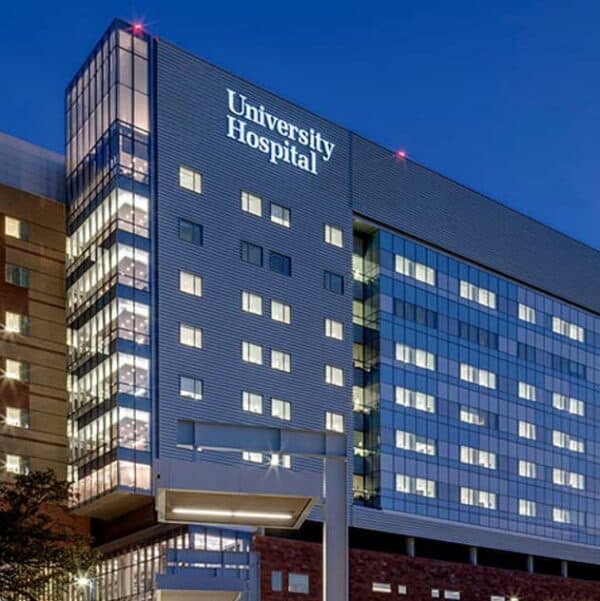All around the country, surgical centers are popping up or getting purchased by larger networks. This is a very good thing for both patients and the health care system in general. Why? Because these surgical centers offer outpatient services at a lower price and prevent costly hospital stays. It’s really a win-win situation – as long as the billing is done correctly and those claims are paid on time by the commercial insurance companies. We know that this isn’t always the case. Since the surgical centers see so many different types of patients and handle a number of different cases, the billing process can be complicated. Mistakes made there can lead to unpaid claims, which can quickly spiral out of control.
Surgical Centers in the News
The topic of surgical centers has appeared in the news quite a bit recently – for positive reasons. In Durango, Colorado, the Animas Surgical Hospital has been so popular that it just recently signed a contract to expand by 73,000 square feet. According to Brett Gosney, CEO of Animas Surgical Hospital, “We have increased our inpatient and outpatient services and have attracted top medical talent to our community, all while operating at or near capacity. This expansion will allow us to serve our patients into the future by providing additional access to quality care and advancing the region as a health care destination.” The article goes on to explain that this surgical center’s expansion includes a multi-level parking garage. The growth of this surgical center is impressive. The article stated that “currently, ASH has 82 affiliated adviser providers, who are physicians, physician assistants and nurse practitioners. In 2004, when the surgical hospital first opened, it had 30 affiliated adviser providers. In 2017, ASH had 160 staff members compared with 35 staff members when it opened in 2004.” This is happening all across the nation.
According to Becker’s ASC Review, three recent surgical center transactions have taken place – one in Tennessee, one in Nebraska, and one in Louisiana. The Surgery Partners Network, which is based in Nashville, Tennessee, snapped up all of these now-partnered facilities. This is proof that surgical centers are trending and these networks are going to grow exponentially. You’ll see more of these multi-state groupings in the future. However, there’s a downside – these multi-state networks lead to billing issues.
Surgical Centers Tend To Have Billing Issues
Like with most billing departments, the ones at these surgical centers have a number of codes that they need to keep track of. Every commercial health insurance company has a contract with the surgical center. This information includes how much the surgical center can bill for certain procedures, as well as how those claims are sent in. Most are sent electronically to the insurance companies, making it easy to track them. The problem comes when mistakes are made in the billing process. Sometimes things end up getting miscoded, or the wrong amount is requested. When those claims are sent back to the surgical center, it’s up to the billing employees to double-check them and then resubmit them. This resubmission is the first of their state-level appeals. Only three are allowed.
In most cases (as you can see from the statistics included above) most claims are paid by the end of the three appeals. The problem comes when they aren’t. No matter the reason for the unpaid or underpaid commercial health insurance claims, these finished appeals can cause a number of problems.
Unpaid Claims After The State Level Appeals Process
Every surgical center has three state-level appeals that they go through when trying to collect on a commercial health insurance plan. The ways in which the appeals are done depends on the insurance company itself. Every one of them has a different form, another process, and sometimes a separate address that those claims need to be sent to. This just makes it more difficult for the surgical center’s billing employees. They need to know the specifics and have enough time to deal with each round of appeals. There’s usually a lot of paperwork involved. What makes this even trickier is the time frame.
According to the statistics in Becker’s most of these claims are sent out for payment within three days of the surgery. The time that it takes to wade through the codes and billing documents to find the correct forms is what generally leads to these delays. Without those specifics, the process would move much faster. It gets even worse when you consider what happens when those claims are sent back unpaid or underpaid. You only receive three state-level appeals on these claims before they end up being shelved for good. At that point, they end up in what we call a debt bucket, on the wrong side of the balance sheet. If those add up enough – and the rate of fully paid claims begins to fall precipitously – then your surgical center ends up in financial hot water.
Unpaid Bills Can Pile Up
Surgical centers have quite a few bills to pay, including the surgeons and supporting doctors and nurses, their utilities, any building maintenance and upkeep, and necessary supplies. Without a cash flow that consists of 100% paid claims, your surgical center could end up in financial trouble. There’s also the issue of the “boom period” that surgical centers are in. The need and market for them could end up shrinking, making these unpaid claims even more important.
There’s A Trick To Getting Those Claims Paid
Thankfully, there’s an option when it comes to those rejected surgical center claims – the Federal ERISA appeals process. ERISA, also known as the Employee Retirement Income Security Act, is a method used by specialists to ensure that those commercial healthcare claims get paid. According to ERISA, which was created to govern employee retirement plans and then expanded to include self-paid health insurance, those unpaid commercial healthcare claims must be paid. However, this is a specialized and time-consuming process.
The main issue is that the surgical center billing employees don’t have the time to go through the Federal ERISA appeals process. These billing employees more than likely don’t know how even to begin such an appeal, nor do they have access to complete the paperwork and follow up on them. They’re too busy sending out bills for current claims, as well as dealing with those that are in still working through the state level process. All of that money – which these surgical centers really could use – is going uncollected. You need us, ERISA Recovery, to handle the Federal ERISA appeals for you. We don’t require any payment up front and even have a 12-month $1 million guarantee. To be specific, we guarantee that we’ll collect $1 million in claims for you over a 12-month period, as long as we have access to the information that we need.
How We Can Help
It’s time for you to take control of your surgical center’s financial future. You need to ensure that your collection rate from commercial health insurance companies is 100%. This is why you need to contact ERISA Recovery today so that we can help put the Federal ERISA appeals process in motion. You can reach us at (972) 331-4140 or by filling out the contact form on our website.







